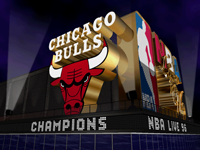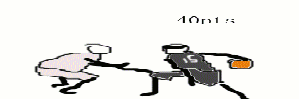Spirit of '99: 2011 Lockout Discussion
Re: Spirit of '99: 2011 Lockout Discussion
Poor negotiating by the NBPA, simple as that. They conceded 7% of the BRI (a chunk load of cash), but ultimately couldn't get the system issues they wanted. Had they come in with a plan they could have slowly reduced their share of BRI for their preferred system issues, as apparently most of the owners cared about BRI more than anything. Owners want too much, players are just down right stupid. Kiss the '11-12 season goodbye.
CPU: Intel i7 2600K OC'd @ 4.4GHZ
GPU: 2 GTX 570s in SLI
RAM: 16 GB Corsair RAM
MOBO: ASRock Z77 Extreme 4
PSU: Rosewill Lightning 1300W
GPU: 2 GTX 570s in SLI
RAM: 16 GB Corsair RAM
MOBO: ASRock Z77 Extreme 4
PSU: Rosewill Lightning 1300W
-

Bnicolas13 - Posts: 306
- Joined: Fri Sep 03, 2010 10:31 am
Re: Spirit of '99: 2011 Lockout Discussion
http://www.cbssports.com/nba/story/1611 ... tting-into
As Hunter described, union officials explained the owners' proposal, which would've been replaced by a far worse one if the players didn't accept it. He then laid out the options: present it to the full body for a vote; reject it; make a counterproposal; or give the NBPA the authority to "do whatever they deem necessary and appropriate going forward," Hunter said.
"And then all of a sudden, the players said, 'No, we want to talk about decertification or disclaimer,' " Hunter said. "So it actually came from the floor. And when it came from the floor, then that's when we began to engage on the issue."
The players then decided that a disclaimer was the route they wanted to pursue, because, you know, players tend to spend a lot of time sitting around thinking of obscure legal strategies. Hunter said they didn't want to wait the 45-60 days for a decertification effort to bear fruit with an election authorized by the National Labor Relations Board.
The decision to disclaim, announced after the nearly four-hour player meeting, stunned even those agents who had been clamoring for the players to decertify for months. Agents held a conference call late Monday afternoon, and according to a person who was briefed on it, hardly any of them were happy with the path the union chose. Some 200 decertification signatures already collected from players likely will be filed with the NLRB as a backup plan in case the disclaimer strategy doesn't work, sources familiar with the decert movement said.
"This is honestly the last thing I would've done," one moderate agent said of the union's disclaimer. "I can't imagine these [players] truly know what they've gotten themselves into. ... I don't know an agent, including the decert agents, who are happy with this move."
A disclaimer was the one weapon at the union's disposal that causes the most chaos the fastest, so maybe there is legal genius in that alone. Once the players file their antitrust lawsuit, the league presumably would follow through on its threat to void all player contracts. Technically, the league would be free to start over -- with new rules, a new draft, and new ways of assigning players to teams. The players would bargain individually, and they wouldn't be considered scabs since they are no longer represented by a union.
But a disclaimer isn't a stronger hand than decertification, and unlike decertification, bargaining talks cannot continue between the league and union. All that can result is a settlement reached by the attorneys -- which at some point would take the form of a collective bargaining agreement if a simple majority of players voted to reinstate the union and the owners decided to recognize it. But that eventuality is a long way off, and it would be a moot point if a federal judge rules that the union's disclaimer tactic is a sham.
How and why a deal didn't get done to avoid all of this is the biggest sham of all.
Among a list of six key system items the players had asked last week to be negotiated further, the league moved modestly on several -- agreeing, for example, to allow tax-paying teams to use sign-and-trades for the first two years of the deal. The remaining list of issues of the highest concern to players heading into Monday hardly seemed worth losing a season over.
A 12 percent reduction in rookie wages and minimum salaries was simply a function of the reduction in salaries from 57 percent of revenues to 50 percent -- and the union's unwillingness to touch max contracts or agree to across-the-board rollbacks. The money had to come from somewhere. As an example, a 12 percent pay cut for the No. 1 pick in the draft would've decreased his rookie salary from $4.4 million to $3.9 million. The 10-year veteran's minimum salary would've gone from $1.4 million to $1.2 million.
All together now: asshattery.
The players also objected to the proposed 10 percent escrow withholding and a new mechanism to account for the likely overage in the players' 50 percent guarantee -- especially in the first two years of the deal. Again, if max contracts remained intact and there were no rollbacks, how else was the players' reduced share of revenues going to be accounted for in a new system?
Similarly, the hills where the owners chose to die were equally minimal compared to the powder keg that was blown up Monday at the Westin. They're getting $3 billion from the players over 10 years, and they allowed the season to be threatened over making sure that the Lakers can sign only a $3 million backup point guard instead of a $5 million one?
Absurd.
"None of it makes any sense," another agent said.
-

benji - Posts: 14545
- Joined: Sat Nov 16, 2002 9:09 am
-

Jhiane - Spot Up Shooter

- Posts: 4874
- Joined: Thu Jun 17, 2010 4:50 pm
- Location: Inside my dress
Re: Spirit of '99: 2011 Lockout Discussion
Eich wrote:Today is the day I lost any respect I had left for those players that were in that room and were joking around before the announcement.
Few names: Anthony, Billups, Paul, Bryant, Terry, Rondo. Others I did not recognize, forgot the name or didn't know at all.
Why lose respect for vets like Kobe and Billups? Both said they agree with owners, but other players did not. Majority rules, maybe they joked about that in particular.

-

kAmilli LakeShow - Posts: 701
- Joined: Tue Oct 19, 2010 2:36 am
Re: Spirit of '99: 2011 Lockout Discussion
Embarrasing 
-

Radioman - Posts: 1199
- Joined: Fri Oct 29, 2010 8:13 pm
- Location: Germany
Re: Spirit of '99: 2011 Lockout Discussion
since this season will probably cancelled, does the 2012-2013 season guaranteed to happen?
-

Jhiane - Spot Up Shooter

- Posts: 4874
- Joined: Thu Jun 17, 2010 4:50 pm
- Location: Inside my dress
Re: Spirit of '99: 2011 Lockout Discussion
Jhiane wrote:since this season will probably cancelled, does the 2012-2013 season guaranteed to happen?
It ain't, but if they will cancel two seasons - NBA may not even exist at all. Chances of that are very slim, but who knows, these greedy-ass players extended lockout beyond what anybody thought already

-

kAmilli LakeShow - Posts: 701
- Joined: Tue Oct 19, 2010 2:36 am
Re: Spirit of '99: 2011 Lockout Discussion
So much for the 2012 season, it seems.
At this point, I'm too fed up to lay blame on either side or any particular individuals. Both sides have legitimate concerns and interests to protect. Likewise, there's greed and stubbornness on both sides, an unwillingness and/or inability to hammer out a deal that is fair to both sides. I have a difficult time seeing either side as a victim or hard done by in this. There's more money involved than most of us will ever see, they've had enough time to work out a way to share it fairly and work out tweaks to the system that will facilitate competitive balance and promote financial stability without anyone get screwed over.
I'm not interested in pointing fingers at anyone in particular because I think the owners and players have done way too much of that themselves and that's how we've come to this point. They spent most of the first month of the lockout sniping at each other through the media, time that should've been spent working around the clock to bridge the gap. Supposedly enough players were willing to dissolve the union back in July, why wait until a month of games has been cancelled and we're at a point where the whole season could be lost? To try and gain some leverage, sure, but will it be worth given the long term ramifications of a lost season?
In the end, the negotiations seem to have amounted to a stubborn staring contest rather than truly productive discussions. Bill Simmons has suggested it's time for both Billy Hunter and David Stern to step away. I think both need to finish this out, but beyond that, maybe their time is up. It's difficult to single them out though because it seems like everyone who's been heavily involved with the negotiations has done their part in making a complete mess of the situation.
Guess we'll just have to see where things go from here.
From Woj: Stern, Hunter lose sight of NBA season
At this point, I'm too fed up to lay blame on either side or any particular individuals. Both sides have legitimate concerns and interests to protect. Likewise, there's greed and stubbornness on both sides, an unwillingness and/or inability to hammer out a deal that is fair to both sides. I have a difficult time seeing either side as a victim or hard done by in this. There's more money involved than most of us will ever see, they've had enough time to work out a way to share it fairly and work out tweaks to the system that will facilitate competitive balance and promote financial stability without anyone get screwed over.
I'm not interested in pointing fingers at anyone in particular because I think the owners and players have done way too much of that themselves and that's how we've come to this point. They spent most of the first month of the lockout sniping at each other through the media, time that should've been spent working around the clock to bridge the gap. Supposedly enough players were willing to dissolve the union back in July, why wait until a month of games has been cancelled and we're at a point where the whole season could be lost? To try and gain some leverage, sure, but will it be worth given the long term ramifications of a lost season?
In the end, the negotiations seem to have amounted to a stubborn staring contest rather than truly productive discussions. Bill Simmons has suggested it's time for both Billy Hunter and David Stern to step away. I think both need to finish this out, but beyond that, maybe their time is up. It's difficult to single them out though because it seems like everyone who's been heavily involved with the negotiations has done their part in making a complete mess of the situation.
Guess we'll just have to see where things go from here.
From Woj: Stern, Hunter lose sight of NBA season

Contact: Email | X | Bluesky
Modding Topics: NBA 2K10 | NBA Live 08 | NBA Live 07 | NBA Live 06 | NBA 2K6 | NBA Live 2005 | NBA Live 2004 | NBA Live 96
Story Topics: NBA Live 16 | NBA 2K14 | NBA 2K13 | NBA Live 06 (Part 2) | NBA Live 06 (HOF) | NBA Live 2004 (HOF)
NLSC: Podcast | The Friday Five | Monday Tip-Off | Wayback Wednesday | Facebook | X | YouTube | Instagram | Bluesky
Donations/Support: Patreon | PayPal
-

Andrew - Retro Basketball Gamer

- Posts: 115122
- Joined: Thu Aug 22, 2002 8:51 pm
- Location: Australia
Re: Spirit of '99: 2011 Lockout Discussion
Andrew wrote:In the end, the negotiations seem to have amounted to a stubborn staring contest rather than truly productive discussions. Bill Simmons has suggested it's time for both Billy Hunter and David Stern to step away. I think both need to finish this out, but beyond that, maybe their time is up. It's difficult to single them out though because it seems like everyone who's been heavily involved with the negotiations has done their part in making a complete mess of the situation.
Guess we'll just have to see where things go from here.
From Woj: Stern, Hunter lose sight of NBA season
As soon as this lockout is over, Stern and Hunter really need to step back. This is something I'm saying for quite some time. But like some others here I'm just tired of reading the same old sh*t about 50/50, 57/50, 47/53 or stuff like that every morning.
Last season was really amazing, but now the NBA just totally screwed it up...
“Get your facts first, then you can distort them as you please.” - Mark Twain
-

_Steve_ - Posts: 1652
- Joined: Fri Jan 08, 2010 9:09 pm
- Location: Hannover, Germany
Re: Spirit of '99: 2011 Lockout Discussion
their ratings was totally got up, even here in the Philippines distributed a free coverage of the NBA Finals and the people recognizes the NBA more and it was an example of their ratings got higher
-

Jhiane - Spot Up Shooter

- Posts: 4874
- Joined: Thu Jun 17, 2010 4:50 pm
- Location: Inside my dress
Re: Spirit of '99: 2011 Lockout Discussion
The NBA can lick my balls as far as i'm concerned.
This creep pretty much sums up how i feel...
I spose there's always college ball...
or NBL...
This creep pretty much sums up how i feel...
I spose there's always college ball...
or NBL...
-

Nick - Barnsketball

- Posts: 6536
- Joined: Sun Sep 15, 2002 9:01 pm
- Location: Melbourne, Australia
Re: Spirit of '99: 2011 Lockout Discussion
Nick wrote:or NBL...
Good time to pick it up. Heritage week this week. Throwback uniforms and everything.
On the other hand, games still aren't on TV until 10.30, which is utterly ridiculous.
-

koberulz - Everything I say is false.
- Posts: 4636
- Joined: Sat Jun 04, 2005 11:46 pm
- Location: Perth, Australia
Re: Spirit of '99: 2011 Lockout Discussion
Is that 10:30 in WA? I thought they'd moved it to early morning timeslots.

Contact: Email | X | Bluesky
Modding Topics: NBA 2K10 | NBA Live 08 | NBA Live 07 | NBA Live 06 | NBA 2K6 | NBA Live 2005 | NBA Live 2004 | NBA Live 96
Story Topics: NBA Live 16 | NBA 2K14 | NBA 2K13 | NBA Live 06 (Part 2) | NBA Live 06 (HOF) | NBA Live 2004 (HOF)
NLSC: Podcast | The Friday Five | Monday Tip-Off | Wayback Wednesday | Facebook | X | YouTube | Instagram | Bluesky
Donations/Support: Patreon | PayPal
-

Andrew - Retro Basketball Gamer

- Posts: 115122
- Joined: Thu Aug 22, 2002 8:51 pm
- Location: Australia
Re: Spirit of '99: 2011 Lockout Discussion
10.30 all markets. They've been delayed a bit further than that over east the past couple of weeks (making this the first and probably last time being in WA has been a good thing for TV sports viewing) due to various motor racing events I don't care enough about to identify, but for this week at least they're back to 10.30 in all markets.
-

koberulz - Everything I say is false.
- Posts: 4636
- Joined: Sat Jun 04, 2005 11:46 pm
- Location: Perth, Australia
Re: Spirit of '99: 2011 Lockout Discussion
Ah, fair enough. That would've just been a terrible move to make permanently.

Contact: Email | X | Bluesky
Modding Topics: NBA 2K10 | NBA Live 08 | NBA Live 07 | NBA Live 06 | NBA 2K6 | NBA Live 2005 | NBA Live 2004 | NBA Live 96
Story Topics: NBA Live 16 | NBA 2K14 | NBA 2K13 | NBA Live 06 (Part 2) | NBA Live 06 (HOF) | NBA Live 2004 (HOF)
NLSC: Podcast | The Friday Five | Monday Tip-Off | Wayback Wednesday | Facebook | X | YouTube | Instagram | Bluesky
Donations/Support: Patreon | PayPal
-

Andrew - Retro Basketball Gamer

- Posts: 115122
- Joined: Thu Aug 22, 2002 8:51 pm
- Location: Australia
Re: Spirit of '99: 2011 Lockout Discussion
koberulz wrote:Nick wrote:or NBL...
Good time to pick it up. Heritage week this week. Throwback uniforms and everything.
On the other hand, games still aren't on TV until 10.30, which is utterly ridiculous.
Yeah to be honest i've been jumping on it for sure. Been watching games when i can. I'm gonna see the melb tigers vs sydney in 2 weeks.
NBL isn't THAT bad. It's just not world class like NBA.
-

Nick - Barnsketball

- Posts: 6536
- Joined: Sun Sep 15, 2002 9:01 pm
- Location: Melbourne, Australia
Re: Spirit of '99: 2011 Lockout Discussion
The contract's meant to only allow a three-hour delay. Hasn't stopped everything being delayed six hours in WA or the past couple of weeks being delayed up to eight hours or something ridiculous even in the eastern states, though, so I'm really not sure what the deal is there. I did email Chuck Harmison about it a while back, and basically all I got was that there was a confidentiality agreement and he couldn't really say much.
-

koberulz - Everything I say is false.
- Posts: 4636
- Joined: Sat Jun 04, 2005 11:46 pm
- Location: Perth, Australia
Re: Spirit of '99: 2011 Lockout Discussion
what if all players will walkout against NBA and will not play anymore? 
-

Jhiane - Spot Up Shooter

- Posts: 4874
- Joined: Thu Jun 17, 2010 4:50 pm
- Location: Inside my dress
Re: Spirit of '99: 2011 Lockout Discussion
Well, there won't be a league. That's highly unlikely though.

Contact: Email | X | Bluesky
Modding Topics: NBA 2K10 | NBA Live 08 | NBA Live 07 | NBA Live 06 | NBA 2K6 | NBA Live 2005 | NBA Live 2004 | NBA Live 96
Story Topics: NBA Live 16 | NBA 2K14 | NBA 2K13 | NBA Live 06 (Part 2) | NBA Live 06 (HOF) | NBA Live 2004 (HOF)
NLSC: Podcast | The Friday Five | Monday Tip-Off | Wayback Wednesday | Facebook | X | YouTube | Instagram | Bluesky
Donations/Support: Patreon | PayPal
-

Andrew - Retro Basketball Gamer

- Posts: 115122
- Joined: Thu Aug 22, 2002 8:51 pm
- Location: Australia
Re: Spirit of '99: 2011 Lockout Discussion
Jhiane wrote:what if all players will walkout against NBA and will not play anymore?

2K PRO-AM: Join NLSC THRILLHO 2K-PROAM Team in NBA 2K20 (PS4)
-

Kenny - Thon Maker's Biggest Fan.

- Posts: 3688
- Joined: Thu Aug 16, 2007 7:37 pm
- Location: Brisbane, Australia
Re: Spirit of '99: 2011 Lockout Discussion
http://www.nbpa.org/
Pretty sums things up. Though they're not actually resolving this...
Αnd a video with a David Stern's opinion on the reject from the union...
Error 404: Basketball Not Found
Please be patient as we work on resolving this. We are sorry for the inconvenience.
Pretty sums things up. Though they're not actually resolving this...
Αnd a video with a David Stern's opinion on the reject from the union...
-

George7 - Posts: 3856
- Joined: Fri Jul 11, 2008 8:01 pm
- Location: Athens,Greece
Re: Spirit of '99: 2011 Lockout Discussion
There's a lot of that going on all around the world.

Contact: Email | X | Bluesky
Modding Topics: NBA 2K10 | NBA Live 08 | NBA Live 07 | NBA Live 06 | NBA 2K6 | NBA Live 2005 | NBA Live 2004 | NBA Live 96
Story Topics: NBA Live 16 | NBA 2K14 | NBA 2K13 | NBA Live 06 (Part 2) | NBA Live 06 (HOF) | NBA Live 2004 (HOF)
NLSC: Podcast | The Friday Five | Monday Tip-Off | Wayback Wednesday | Facebook | X | YouTube | Instagram | Bluesky
Donations/Support: Patreon | PayPal
-

Andrew - Retro Basketball Gamer

- Posts: 115122
- Joined: Thu Aug 22, 2002 8:51 pm
- Location: Australia
Re: Spirit of '99: 2011 Lockout Discussion
The court date is scheduled for Feb 29.  Goodbye season.
Goodbye season.
-

Nick - Barnsketball

- Posts: 6536
- Joined: Sun Sep 15, 2002 9:01 pm
- Location: Melbourne, Australia
Re: Spirit of '99: 2011 Lockout Discussion
It depends how the league and owners respond but yeah, nothing looks too promising at the moment.

Contact: Email | X | Bluesky
Modding Topics: NBA 2K10 | NBA Live 08 | NBA Live 07 | NBA Live 06 | NBA 2K6 | NBA Live 2005 | NBA Live 2004 | NBA Live 96
Story Topics: NBA Live 16 | NBA 2K14 | NBA 2K13 | NBA Live 06 (Part 2) | NBA Live 06 (HOF) | NBA Live 2004 (HOF)
NLSC: Podcast | The Friday Five | Monday Tip-Off | Wayback Wednesday | Facebook | X | YouTube | Instagram | Bluesky
Donations/Support: Patreon | PayPal
-

Andrew - Retro Basketball Gamer

- Posts: 115122
- Joined: Thu Aug 22, 2002 8:51 pm
- Location: Australia
Who is online
Users browsing this forum: No registered users and 6 guests


